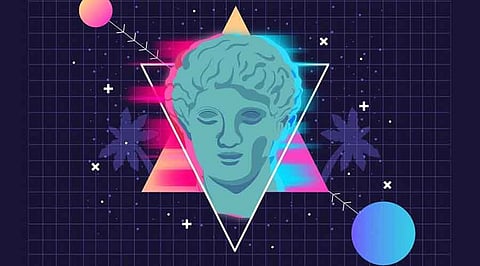

In the realm of art and digital assets, a groundbreaking shift is underway, thanks to the rise of Non-Fungible Tokens (NFTs). These unique digital tokens, built on blockchain technology, are transforming how we view ownership, authenticity, and value in the digital world. NFTs stand out because they cannot be exchanged on a like-for-like basis which sets them apart from cryptocurrencies like Bitcoin. This quality is revolutionizing the art sector and provides artists and collectors with new opportunities and challenges.
NFTs have ushered in a new era where digital art is not just appreciated but also valued at par with, and sometimes even more than, traditional art. Platforms like OpenSea, Rarible, and Foundation have become the new galleries for digital artists, allowing them to showcase and sell their work globally.
These platforms have democratized art sales. They provide a space for artists outside the traditional gallery system to succeed. Beeple, a digital artist, made headlines when his artwork sold for a staggering $69 million at Christie's. This case highlights the potential financial rewards for artists in the NFT space.
Beyond art, NFTs have found applications in various domains and indicate their versatility. For example, NBA Top Shot has popularized collectible highlights, and virtual real estate platforms like Decentraland offer unique pieces of digital land as NFTs. These examples underscore the broad appeal and utility of NFTs, extending well beyond traditional art into areas like sports and virtual reality.
The core of NFTs' appeal lies in their ability to confirm ownership and authenticity in a way that was previously impossible for digital items. Each NFT is a one-of-a-kind asset in the digital book, providing irrefutable proof of ownership and provenance.
This has significant implications for artists and collectors alike. Artists can now sell their digital works while retaining copyright, and collectors can be assured of the authenticity of their purchases.
The impact of NFTs on ownership and authenticity extends beyond art to other fields. For instance, in the iGaming industry or Betting Online Romania, NFTs could revolutionize how ownership and provenance of digital assets are verified, ensuring secure and transparent records. This application illustrates the potential of NFTs to transform various industries by providing a new level of security and trust in digital transactions.
As NFTs redefine the landscape of digital art and ownership, they also pose new challenges and opportunities in the realm of digital distribution and copyright. The blockchain technology underlying NFTs offers a transparent, immutable record of every transaction.
This has profound implications for copyright in the digital age, enabling artists to maintain control over their work and receive royalties from secondary sales, a feature platforms like OpenSea are beginning to implement.
However, the path forward is not without its challenges. The environmental impact of blockchain technology and the potential for copyright violation in digital spaces are issues that need addressing. Nonetheless, the evolution of NFTs could pave the way for more sustainable practices and innovative solutions to copyright management.
Join our WhatsApp Channel to get the latest news, exclusives and videos on WhatsApp
_____________
Disclaimer: Analytics Insight does not provide financial advice or guidance. Also note that the cryptocurrencies mentioned/listed on the website could potentially be scams, i.e. designed to induce you to invest financial resources that may be lost forever and not be recoverable once investments are made. You are responsible for conducting your own research (DYOR) before making any investments. Read more here.
